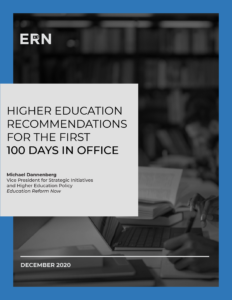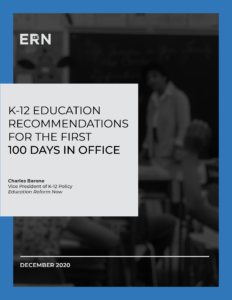The Biden-Harris Administration will enter office with an unprecedented and unique array of challenges to ensuring equity, fairness, and excellence in our education system. Some of these challenges are not new. Decades-old policies of inequity and systemic racism continue to limit opportunities for students from low-income families, students of color, and others from historically disadvantaged groups. What’s more, the COVID-19 crisis has exacerbated these troubling and chronic impediments to student success not just in education policy and practice, but more broadly with regard to the dire economic and resource straits in which millions of families find themselves across the United States.
We urge the President- and Vice President-elect to advance education policies that aspire to the historic role the federal government has played in narrowing opportunity gaps and channeling resources to the students and schools most in need of them, toward the goal of ensuring that a high-quality education is a universal right for all, regardless of race, family income, zip code, disability, or country of origin. Increased resources for education are desperately needed, but not enough. We believe that, in addition to President-elect Biden’s commitment to unprecedented levels of funding, transformative change will require innovative and bold policies directed at improving outcomes for our nation’s historically underserved students.
Read our Recommendations for Elementary & Secondary Education
and Higher Education


Below, you can also find a brief overview of the recommendations.
Higher Education
- Student loan relief
- Implement free college and double Pell Grants
- Foster dual enrollment
- Ensure a meaningful commitment to access, diversity, and civic engagement
Elementary & Secondary Education
- Provide COVID-19 relief
- Continue annual assessments and accountability
- Create a diverse, highly effective, and well-paid teacher workforce
- Innovate teacher and school leader preparation
- Maintain public school choice and public charter schools
###